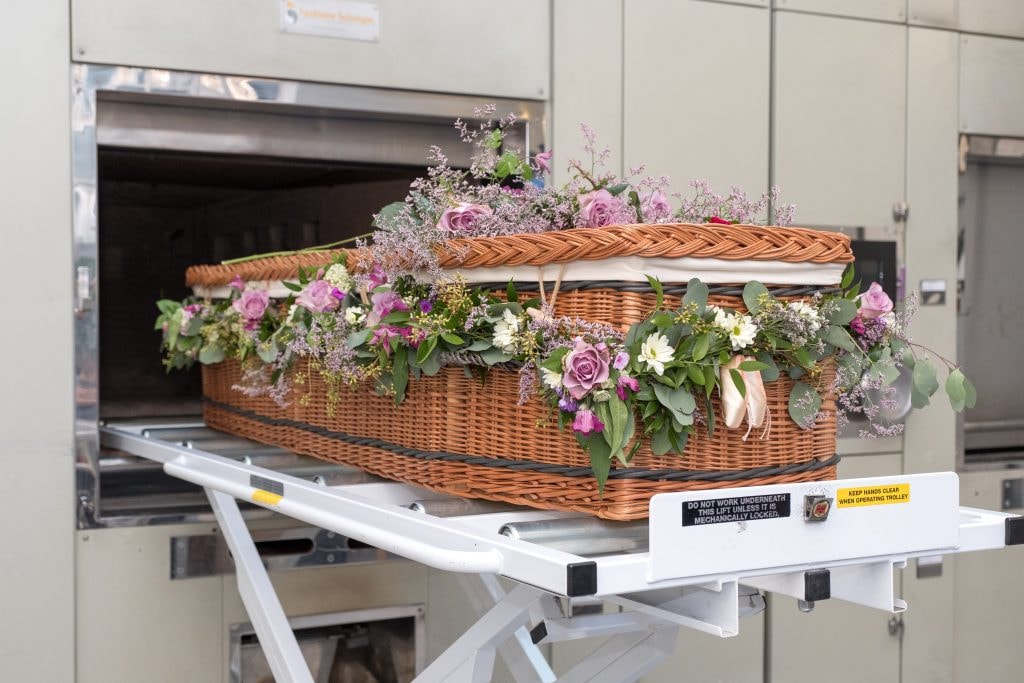The average cost of a funeral service in Texas is $5,192, excluding cemetery fees, which can add thousands more to the final bill. Traditional funerals typically include several costly elements, such as embalming, a casket, a viewing, and a burial plot. Additional expenses, including transportation, flowers, and obituary notices, can quickly inflate the overall price. Many families are shocked by these funeral costs, especially if they have not planned in advance.

Traditional funerals often place a heavy financial burden on family members. In addition to the emotional strain of losing a loved one, families are left with a significant financial responsibility, which may be difficult to manage.
Expenses like cemetery fees and services offered by a funeral home can vary greatly depending on location and the specific funeral provider, but they often push the total cost well beyond what many people can afford. Understanding these costs is essential to finding a solution that respects both your loved one’s memory and your financial situation.
What Is the Cheapest Option After Death?
When considering the most affordable options after death, direct cremation is by far the least expensive choice. Direct cremation involves a straightforward process in which the body is cremated shortly after death, without the need for a funeral service or viewing beforehand. This simplicity reduces costs significantly, making it an affordable option for families.
For those wondering what is the cheapest option after death, direct cremation typically costs between $795 and $1,000 in most areas of Texas. When compared to the thousands of dollars required for a traditional funeral, this option provides significant savings. By choosing direct cremation, families can still hold a personalized memorial service at a later time, allowing them to honor their loved one’s memory in a more cost-effective way. It’s important to compare prices between cremation providers to ensure the best value.
Direct Cremation: A Low-Cost Alternative
Direct cremation is a simple and dignified option where the body is cremated soon after death, without the need for embalming, a viewing, or a funeral service beforehand. This process significantly reduces cremation expenses by eliminating many of the costly components of a traditional funeral. Once the body is cremated, the remains are returned to the family, allowing for a memorial service or private scattering ceremony at a later time.

In Houston, the average cost of a direct cremation service ranges from $795 to $1,000, making it one of the most low-cost direct cremation options available. These prices can vary depending on the specific cremation provider, but they are still far more affordable than a traditional funeral. Many low-cost providers offer basic services, which typically include transportation, the cremation itself, and the return of the ashes in a simple container.
Choosing direct cremation does not mean sacrificing respect or care for your loved one. Instead, it offers a streamlined and affordable alternative for families who wish to avoid the financial strain of traditional funeral services while still honoring the deceased in a meaningful way. It’s essential to review what is included in each provider’s package to avoid any unexpected fees.
Immediate Cremation vs. Free Cremation
There are distinct differences between immediate cremation and free cremation. Immediate cremation refers to the process of cremating the body shortly after death, typically without any ceremonies beforehand, and comes at a low cost. On the other hand, free cremation is possible through options like whole body donation to medical schools or research institutions. With body donation, the institution covers the cremation costs once the body has been used for medical purposes.

This option is often chosen by individuals seeking to contribute to medical research while relieving their families of cremation expenses.
Memorial Services After Cremation
A memorial service provides families with an opportunity to gather and honor their loved one after the cremation process is complete. These services are highly customizable and can be scheduled at any time, giving families the flexibility to plan something meaningful without the pressure of immediate arrangements.
One of the cost-saving benefits of a memorial service is that it doesn’t have to take place at a funeral home. Families can choose to host the service in a more personal or cost-effective location, such as a family home, a park, or a community center. Alternatively, if preferred, some funeral homes offer the use of their chapel at a lower rate than traditional funeral services.
Additionally, families have the option to display the cremated remains in an urn or scatter them in a meaningful location, offering a personal touch to the ceremony. This flexibility reduces overall costs while still providing a respectful farewell.
Burial and Plot Options: Finding Affordable Solutions
While burial plots can be expensive, there are several alternatives that can help families find an affordable option. One way to reduce costs is by opting for cremation and then either scattering the cremated remains in a meaningful place or keeping them in an urn, which eliminates the need for a burial plot altogether.
For those who prefer burial, an immediate burial is often the least expensive traditional option. Immediate burial involves interring the body without a viewing or ceremony, reducing costs associated with a funeral service. This typically costs less than a full-service funeral and can be paired with a more affordable grave or burial site. By exploring these options, families can honor their loved one’s wishes without facing overwhelming costs associated with high-end burial graves or caskets.
Private or Pre-Owned Plots
Another way to save on burial costs is by purchasing a burial plot privately or buying a pre-owned plot from someone looking to sell. In many cases, families can find pre-owned plots at a significantly lower price than new ones. While purchasing through a cemetery may offer convenience, private sales or second-hand plots are often more budget-friendly, providing a more affordable option for those looking to save on burial grave expenses.
Financial Assistance for Funeral Costs
For families struggling with funeral expenses, several forms of financial assistance are available. Many funeral homes and cremation providers offer discounts for low-income families, veterans, or hospice patients. Additionally, Social Security provides a one-time lump-sum death benefit of $255, which can be applied toward funeral costs.
Non-profit organizations may also provide financial aid to those in need, helping cover cremation expenses or other funeral-related costs. Additionally, theFederal Emergency Management Agency (FEMA) offers financial assistance for funeral services if the death occurred due to a federally declared disaster. These options can be vital for families facing financial hardship, helping to alleviate the burden of funeral expenses during a difficult time.
Crowdfunding and Other Financial Support Options
Crowdfunding has become a popular way to raise funds for funeral expenses. Platforms like GoFundMe allow families to create campaigns to collect donations from friends, family, and the community. However, it’s essential to be aware of the platform fees that can reduce the final amount raised. Despite these fees, crowdfunding can provide valuable financial support and help relieve the financial burden that comes with planning a funeral.
Death Certificates and Other Required Documents
A death certificate is a crucial document required for both cremation and burial. This legal document certifies the death and is necessary for accessing insurance benefits, handling estate matters, and filing for certain financial aid. In Texas, the cost of a death certificate is typically $20 for the first copy and $3 for each additional copy.
Funeral homes often assist in obtaining these documents, but there may be additional fees for paperwork processing and transportation of the deceased. It’s important for families to inquire about any extra charges associated with these services, as costs can vary between different funeral homes. Working closely with the funeral director can help ensure transparency and avoid any unexpected expenses.
Pre-Planning: How Pre-Arrangements Can Save Money
Pre-arrangements offer significant financial benefits for families planning future funeral services. By making arrangements in advance, individuals can lock in current prices for funeral services, which helps avoid future inflation and rising funeral costs. Pre-paying for these services ensures that the financial burden does not fall on family members during an already difficult time.

Not only do pre-arrangements allow families to control and predict funeral expenses, but they also give peace of mind by ensuring that everything is in place when the time comes. This proactive approach removes the stress of making hasty decisions in the wake of loss, ensuring that loved ones can focus on grieving and remembrance rather than worrying about finances.
Price Comparison: Finding Affordable Funeral Homes
When planning for a funeral, it’s crucial to compare prices and services across various funeral homes. Most funeral homes are required by law to provide a general price list, allowing families to review and compare costs for services such as cremation, burial, and memorials. Taking the time to shop around and inquire about different options can lead to significant savings, helping families find an affordable option that aligns with their budget without sacrificing quality.
The Role of Funeral Directors in Reducing Costs
A funeral director can be an invaluable resource in helping families navigate the financial aspects of planning a funeral. Their expertise allows them to guide families in selecting basic services that are essential, while advising on which additional services might be unnecessary or optional, depending on the family’s preferences and budget.
By working closely with a funeral director, families can customize the funeral to meet their financial needs without compromising the dignity of the service. A knowledgeable funeral director can also help identify potential cost-saving measures, such as reducing transportation fees or choosing simpler options for caskets or urns, making it easier to manage overall funeral costs.
Understanding the Cremation Process
The cremation process is a straightforward procedure where the body is cremated and reduced to ashes. It begins with transporting the deceased to the crematory, where the body is prepared for cremation. The cremation itself typically takes a few hours, after which the cremated remains are placed in a container or urn and returned to the family.
A standard cremation service generally includes transportation, the actual cremation, and the return of the ashes. Some providers may offer additional services, such as memorial options, for an extra fee. Understanding what’s included in the cremation package ensures families can avoid unexpected cremation expenses.
Navigating Affordable Funeral Options with Compassion
Choosing affordable cremation or memorial services can help families manage funeral costs while still honoring their loved ones with dignity and respect. By researching and planning in advance, families can make informed decisions that meet both their emotional and financial needs.
At Best Funeral Homes Houston, we are dedicated to providing compassionate, affordable funeral services that help families during their time of loss, ensuring that their loved ones are remembered without overwhelming financial strain.

